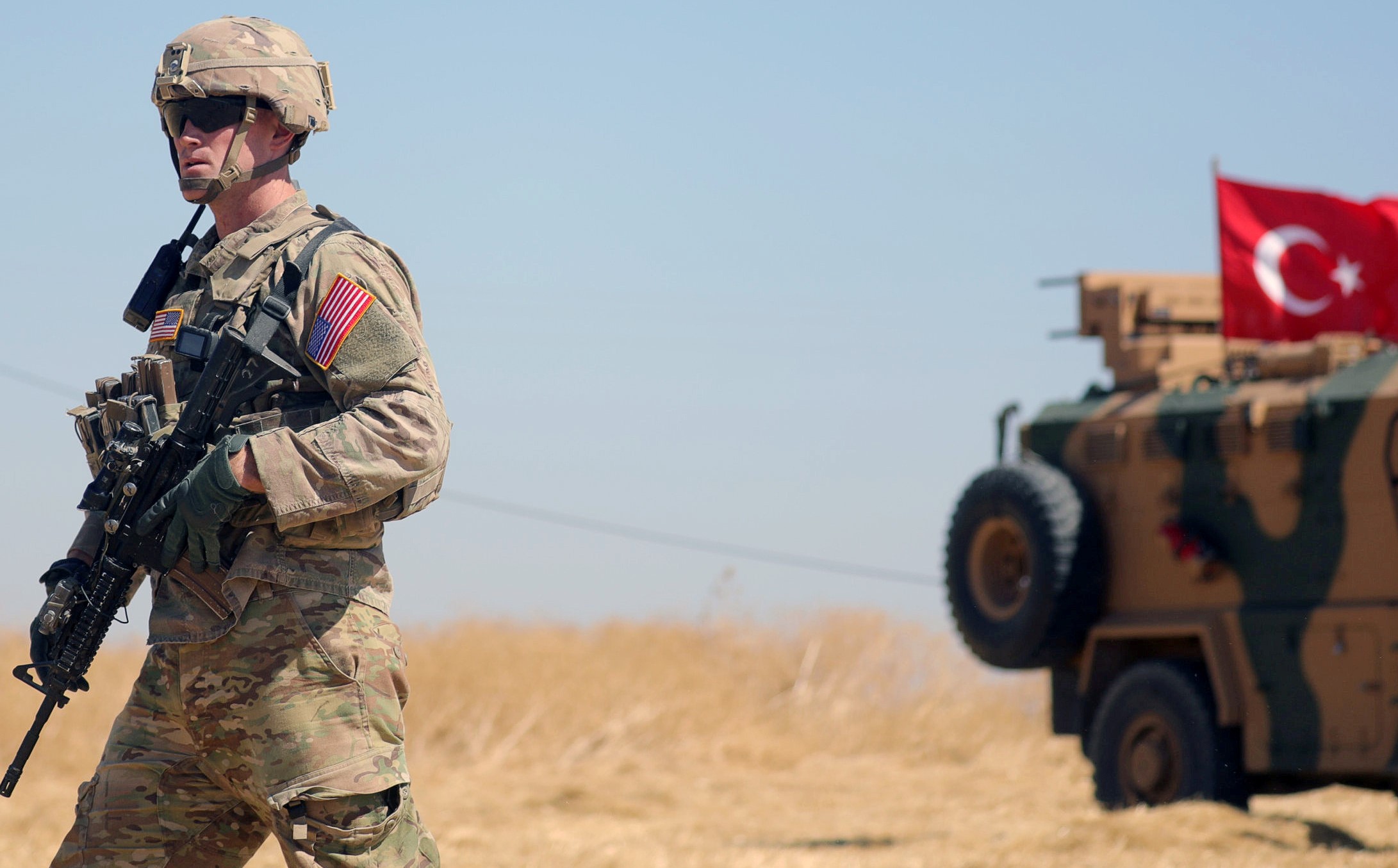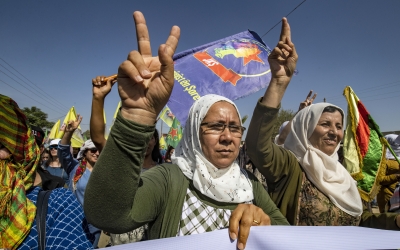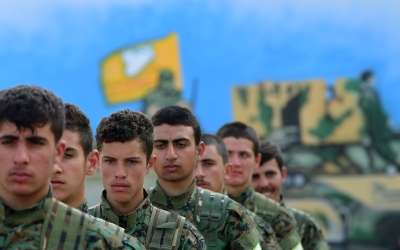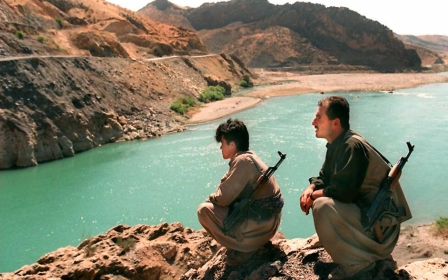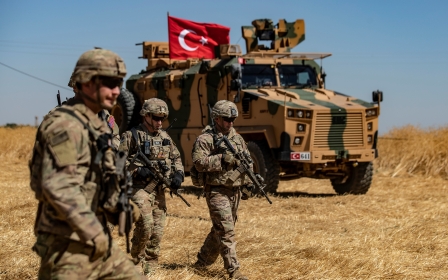Turkey's 'Spring of Peace' could become a winter of war in Syria
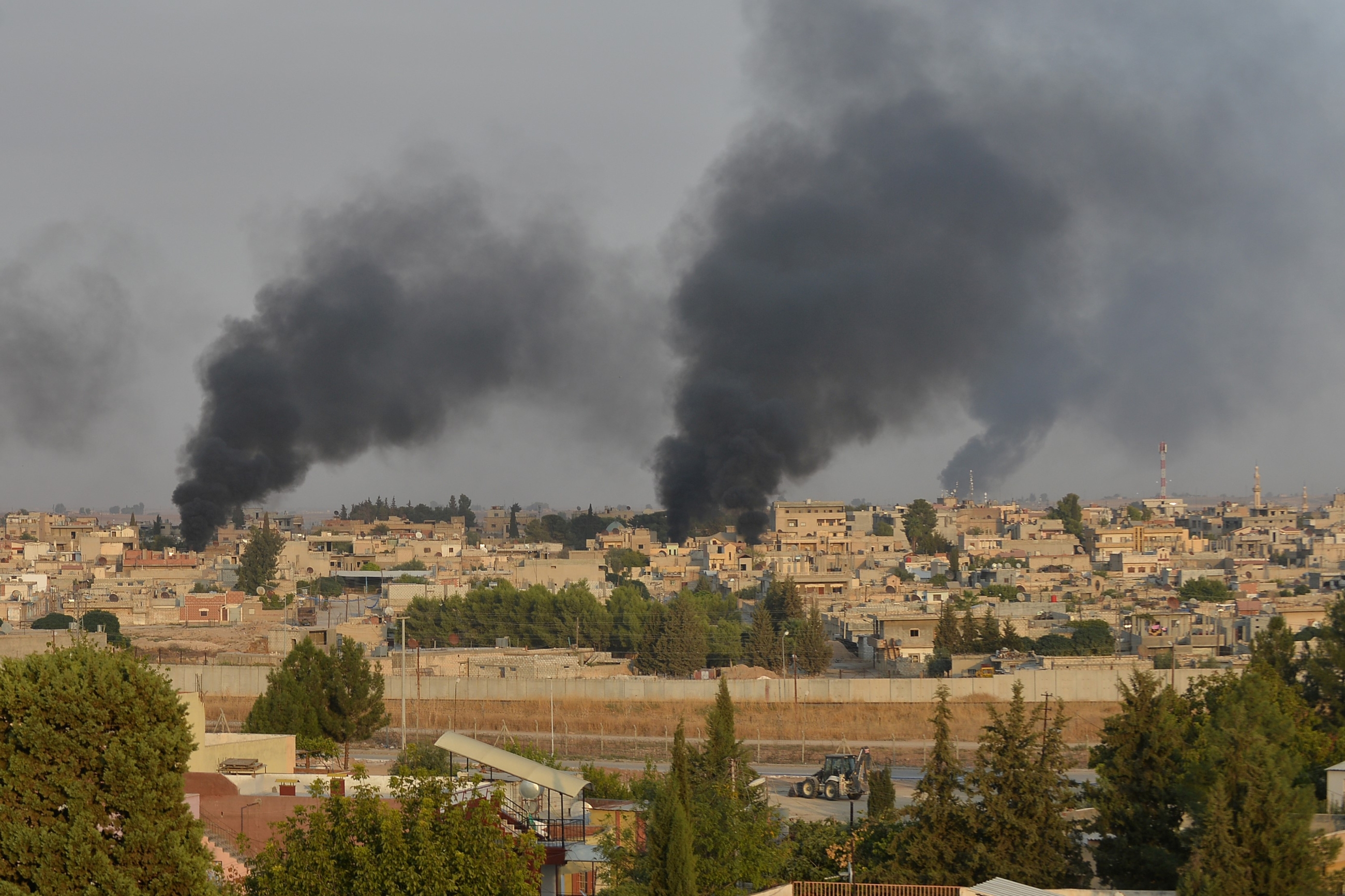
Turkey's President Recep Tayyib Erdogan has embarked on a dangerous gambit in Syria with the blessing of the United States that in all likelihood will backfire on Turkey and augment its own insecurity, let alone Syria's.
Turkey's interventionism in neighbouring Syria – under the twin, and highly questionable, rationale of preventing a "terror corridor" across the 900-plus kilometre border with Syria and creating a "safe zone" to repatriate millions of Syrian refugees – is, indeed, tantamount to partial nation-building.
Turkey's plan
Unveiled with much fanfare at this year's UN summit, the plan is to seize a large chunk of Syrian territory “stretching 460 kilometres”, according to the Turkish official press, encompassing most - if not all - of the Kurdish-controlled area, including the important M4 highway connecting eastern and western Syria.
If successful, this would put Turkey in control of most of Syria's oil and gas resources, presently in the hands of the Kurdish-dominated Syrian Democratic Forces (SDF), not to mention water sources and some of Syria's best agricultural land.
New MEE newsletter: Jerusalem Dispatch
Sign up to get the latest insights and analysis on Israel-Palestine, alongside Turkey Unpacked and other MEE newsletters
The 'Spring of Peace Operation' is a follow up to the 2018 Afrin campaign achieved with the help of Arab proxies committing countless atrocities against the local population
Of course, this is not the first time that a country invades another cloaked in noble intentions, recalling the US's "Operation Enduring Freedom” in Afghanistan or Saddam Hussain's 1980 invasion of Iran in part ostensibly to "liberate" the Iranian Arabs in Khuzestan, where most of Iran's oil is located.
The “Spring of Peace Operation” is a follow up to the 2018 Afrin campaign – that was achieved with the help of proxies committing countless atrocities against the local population, many of whom were subjected to "forced displacement" according to rights organisations.
But, by all indication, the Afrin offensive, which resulted in the flight of hundreds of thousands of civilians, was a dress rehearsal for the main show that has begun with the Turkish military incursions at Ras al-Ain and Tal Abyad.
Two American observation posts were vacated this week as a sign of Trump's green light to Turkey's invasion, after the US had convinced the Kurds to remove their fortifications in August as a gesture of their concessions to Turkey.
No US Syria withdrawal
First, despite the green light, the US is not about to close shop in Syria and allocate its role to Turkey altogether.
There are still approximately 18 US bases and operation points in northern Syria, including two air bases, and there is no indication that the US military has any intention of fulfilling Trump's much-trumpeted withdrawal plan. Indeed the latter is a "smoke and mirrors" shell game that, simultaneously, satisfies the impeachment-threatened US president's desire to deflect from his domestic problems.
There is no indication that the US military has any intention of fulfilling Trump's trumpeted withdrawal plan
As a result, today we are no closer to witnessing an actual US withdrawal from Syria - despite the compliant US media hype - than we were last December when Trump made his initial withdrawal announcement, which prompted similar howls of outrage and the resignation of then defense secretary James Mattis.
In fact, through his congressional and other proxies, such as former UN envoy Nikki Haley, the Trump administration has backpedalled its recent green light in the name of saving the endangered Kurds, thus procuring a timely justification for continued illegal occupation of parts of Syria, by precipitating an essentially self-created crisis.
After all, Trump has repeatedly gone on record stating that defeating the menace of the Islamic State group (IS) has been the US's sole intention in Syria, a presence which is now re-scripted as for the defence of the Kurds, who are publicly bemoaning of America's "stab in the back".
Excelling in the art of irony and self-contradiction, this is an American administration that operates on parallel tracks in Syria, and has no qualm about any signs of inconsistency, although the main thrust of keeping a military lever in Syria indefinitely, inherited from the Obama administration, is unchanged.
Islamic State ghosts
Second, a principal flaw in Turkey's Syria policy is that it ignores the fact that security is a two-way process. Turkey cannot foment insecurity inside Syria while expecting greater security for itself.
Turkey's “safe zone” promises to be a safe haven, and a launching pad, against Damascus by the various anti-regime factions presently groomed by Turkey's army.
These factions have little or no allegiance to Turkey and are in tactical alliance with it, while harbouring their own ambitions.
Worse, the poorly-guarded IS fighters in Kurdish custody, numbering 8,000 to 11,000, according to a recent UN report, are now primed for a major jailbreak, contrary to the White House's sanguine statement that in the aftermath of the long-awaited Turkish operation, Turkey will be responsible for the IS prisoners.
A more likely scenario in the event of a full-scale Turkish invasion is that the Turkish soldiers arriving at the 30 detention centres (such as the overcrowded al-Hol camp) will only find the ghost of IS fighters haunting them for some time to come. Turkey's ill-advised invasion will be manna from heaven for IS, which is already in the process of a "second comeback".
Unwise offensive
Third, another major defect of Turkey’s Syria plan is that it underestimates the battle-hardened Kurds ability to fight back and, perhaps somewhat similar to the Houthis in Yemen, to bring the war to Turkish territory, likely with assistance from Damascus and Tehran. Iran has shown its ire at Ankara's unwise offensive by holding an unannounced military drill at the Turkish border.
From Tehran's vantage point, no matter how close the Iran-Turkey relationship, Turkey is still a NATO country encroaching on the territorial sovereignty of a strategic ally, Syria.
As a result, Erdogan, who the Iranian media accuse of not implementing the so-called Sochi understanding on Idlib (following the Astana process to chart a diplomatic route for a future post-conflict Syria) is in danger of derailing the hitherto healthy trilateral diplomacy with Russia and Iran.
In other words, the Turkish assumption that it can engage in a blatant violation of Syrian sovereignty without damaging the Astana process is simply a self-serving delusion bound to be contradicted by the negative ramifications on regional affairs.
The result will be a “regional recasting” of alliances, with the Kurds reconciling with (the much-strengthened) Damascus in the aftermath of the American "betrayal", and Turkey's relations with Iraq and Iran suffering greatly.
There are nearly always alternatives to war and conquest. As hinted by Russia's President Putin in his January 2019 meeting with Erdogan, one alternative is to resurrect the 1998 Adana agreement, which can be revised by allowing for a three to five-mile demilitarised zone along the Turkey-Syria border.
But, as long as Turkey continues to play the opposition card against Damascus, the latter is unlikely to return to the Adana agreement. Turkey's action represents a breach of international peace and security.
The views expressed in this article belong to the author and do not necessarily reflect the editorial policy of Middle East Eye.
This article is available in French on Middle East Eye French edition.
Middle East Eye delivers independent and unrivalled coverage and analysis of the Middle East, North Africa and beyond. To learn more about republishing this content and the associated fees, please fill out this form. More about MEE can be found here.



